We Have Always Lived in the Castle
£1.50
Six years after four members of the Blackwood family died of arsenic poisoning, the three survivors—elder, agoraphobic sister Constance; wheelchair-bound Uncle Julian; and 18-year-old Mary Katherine, or Merricat—live in peaceful solitude. Merricat has devised an eccentric set of laws and defensive charms to keep the estate safe from intruding villagers. However, a stranger appears one day—cousin Charles, who is after the Blackwood fortune—and manages to infiltrate their carefully guarded lives. Merricat resorts to severe measures after failing to elude him through polite or occult means, resulting in crisis, tragedy, and the disclosure of a dreadful secret.
Read more
Additional information
| Publisher | Grapevine India (25 Mar. 2022) |
|---|---|
| Language | English |
| File size | 1322 KB |
| Text-to-Speech | Enabled |
| Screen Reader | Supported |
| Enhanced typesetting | Enabled |
| X-Ray | Enabled |
| Word Wise | Enabled |
| Sticky notes | On Kindle Scribe |
| Print length | 204 pages |

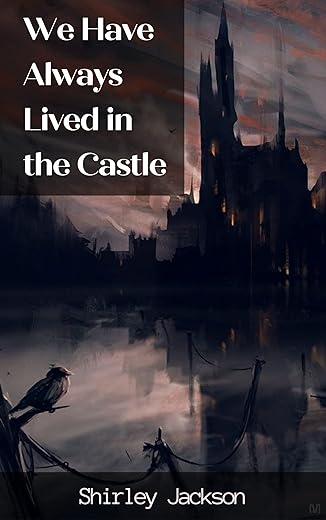

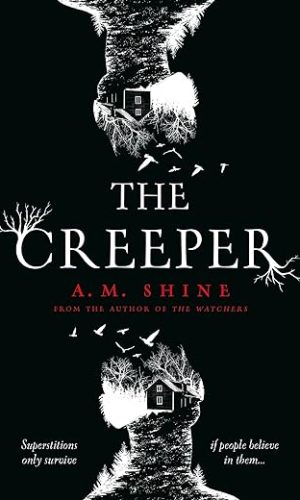
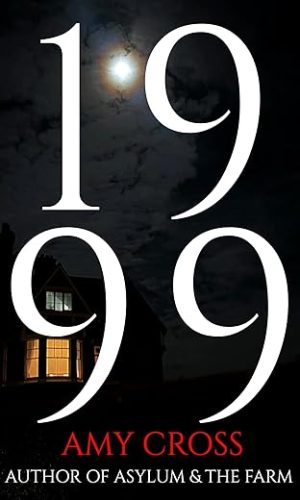
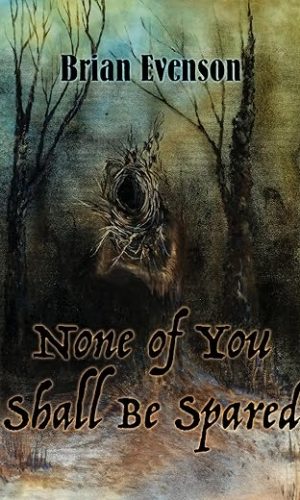
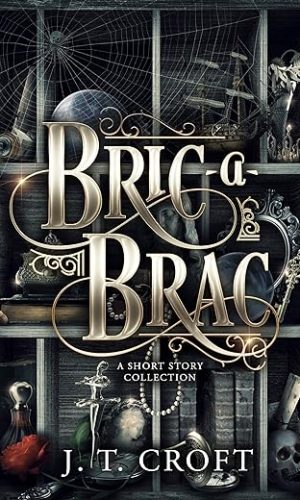

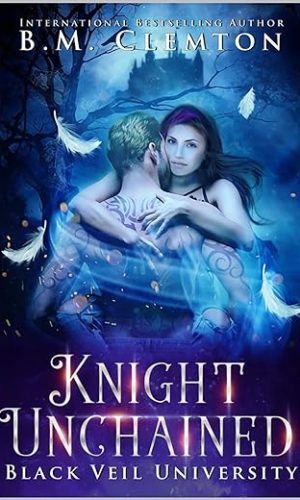
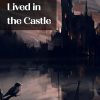
by Amazon Customer
Thought the first half of the book was good interesting
However was disappointed by the last few chapters, it’s like the author runout of
ideas and the ending with the villagers suddenly being concerned and nice doesn’t ring true
by Brooke Fieldhouse
I had a literary dream. I dreamt that I was reading something which was like Iris Murdoch, Angela Carter and Muriel Spark all rolled into one. When I woke up, I realized I had been reading Shirley Jackson. It’s writing coming from heaven – and hell. I’ll explain how.
In Jackson’s short novel We Have Always Lived in The Castle the story is told by Merricat (Mary Katherine). So heavily is the narrative dominated by Merricat that of its 148 pages, for some 100 pages the reader is entirely within the internal monologues of Merricat. We have to be, because in the gospel according to Merricat, power is everything, and that means controlling everybody and everything around her. When she feels that she hasn’t entirely got control she is ‘chilled’ (that’s in the old sense of the word – not the new), and sometimes feels a great weight pressing on her, and it’s then that she employs her own brand of witchery to regain control. To stop people entering the huge house in which her family, the Blackwoods have lived for many years she is ever vigilant about doors, keys and locks. She buries things in the garden and nearby woods, nails books to trees, and if these ‘safeguards’ – as she refers to them – fail then she takes more severe steps to reassert her power.
Merricat has no responsibility, effectively she’s a ‘great child’ – eighteen she tells us on page 1, that’s ten years younger than her sister Constance with whom she lives together with their Uncle Julian. They are the sole survivors of the Blackwood family whose other members died, all on the same evening by poisoning – arsenic put in the sugar. Uncle Julian survived because he ‘never takes much sugar,’ Constance because she ‘doesn’t like sugar on her blackberries,’ and Merricat because that evening – six years ago when she was twelve – she had been ‘sent to bed without any supper,’ and as the reader soon discovers; ‘Mary Katherine must never be punished, we must all bow down to her.’ Constance, it seemed washed the sugar bowl before the police arrived, but that did not stop her being put on trial for multiple murder, a crime for which she was acquitted due to lack of substantial evidence. Merricat was sent to an orphanage from which she returned after the trial to live with Constance. The bond of love between them is seemingly all powerful. Merricat rarely helps Constance in the house, in fact she is not allowed to do certain things like prepare food or handle knives, or go in certain places like Uncle Julian’s room. Constance makes all Merricat’s meals, as if she were still a baby. Uncle Julian has been traumatised by the poisoning and appears to have some degree of dementia.
Here are some examples of Jackson’s sublime writing; giving sentience to non sentient things, ‘dim and rich, in the kind of knowing possessive way trees have of pressing closer,’ or existential ‘but I had no reason to expect that the creek would be there since I had never visited it on a Tuesday morning,’ or ‘I hoped that the house, injured, might reject him all by itself,’ and ‘perhaps Charles and money found each other, no matter how far apart they were.’
So, in terms of a crime novel, the reader finds themselves in the aftermath of the crime – possibly – of the century (I assume it’s set in late 1950s , and perhaps in the Bay area of San Francisco where Jackson was born – or is it just one of those quaint old-fashioned self-contained ‘small town America’ type communities?) and it’s obvious who the real culprit is. But this isn’t a crime novel it’s a psychological drama. It’s blindingly obvious that Merricat has psychiatric – what we would call today – ‘issues,’ wisely undefined and quite possibly even without a name in 1962. The real fear of this novel is that the reader is not only forced to bear witness to Merricat’s power but is sucked in by way of her super astuteness, her weird and at times touching humour. When their boorish cousin Charles arrives at the house and tries to take over, he finds he’s bitten off more than he can chew. Merricat spots straight away he’s incapable of doing any useful DIY jobs around the house, that he’s failed to make a decent career and it’s obvious he’s on the make. He’s going to make changes, and changes to Merricat are like sunlight and cuxifixes to vampires. Charles is incensed by Merricat’s delinquent behaviour, he’s right, but the alarming thing is that the reader finds themselves siding with Merricat. I did, I admit it. There’s a stand off between the two of them including a glorious scene when Merricat taunts him with her knowledge of poisons. It’s as if what enables Merricat to have such enormous powers of analysis is that she appears unencumbered by human emotion. Perhaps she lives vicariously off the emotions of Constance, Uncle Julian, and Charles when he takes up residence? When her various fetishes seem to fail to expel Charles, Merricat goes elemental and employs her razor-sharp opportunism to trigger a cataclysmic event. But the story doesn’t end there, it enters yet another sad but sinister phase which leaves the reader simultaneously laughing and shuddering.
by J. Willis
This is the second Shirley Jackson novel I have read (the first being The House on Haunted Hill) and thus far she has not disappointed me. We Have Always Lived in the Castle is one of those rare gems that seems to transport you to another world effortlessly. I have seldom been so absorbed by a book. Especially one which does not appear to be popular although the reason for this escapes me entirely.
At the beginning of the book we meet Mary Katherine Blackwood (known by her family as Merricat) a strange, dark, daydreaming, 18 year old girl who lives with the remaining members of her family in an old house on the outskirts of town. From the outset of the book it is obvious the townsfolk hate the Blackwood family and apart from Merricat no-one else from the family ever ventures outside. Six years before the beginning of the book most of Merricat’s family were murdered and the culprit was never brought to justice. The murders happened in the same house they live in now which only adds to the intriguing and unsettling nature of the story.
The four central characters are wonderfully written out although not always likeable. The character of Charles, the unwelcome cousin, is delightfully repulsive and devious. Constance herself is a troubled character; forced by circumstance to become the head of the family at the young age of 22. Uncle Julian is a survivor of the murder attempt but it has left him wheelchair bound and suffering from what appears to be the onset of dementia. He is often confused but also has remarkably lucid moments. There is a surprising amount of humour in the book most of which comes from Julian. He is brilliantly irreverent and always speaks his mind.
One of the most interesting parts for me is to see a story from the outcasts point of view rather than the frightened townsfolk. It put me in mind a little of stories like ‘To Kill A Mockingbird’ and the film ‘The Burbs’ both of which contain social outcasts as main characters with the main difference that these stories focus on the point of view of the outsiders looking in as opposed to the hermits looking out.
The story ends in an unusual way which I wasn’t quite expecting. Once I had thought about it for a while I decided I liked the ending. Haven’t we all been in a situation where we would love to shut out the outside world even for a short while? I know I have and this book speaks to that part of me.
by Unapologetic_bibliosmia
Wow. Just wow. I don’t know what I was expecting when I downloaded this to read. But it wasn’t this.
The writing is beautiful, it’s almost lyrical in its imagery. The life we see through Merrikat’s eyes is a glimpse into (I’m guessing) a non-neurorypical view. Full of routines, and patterns and OCD-like repetitions and thought processes. When Merrikat speaks three words into a glass and then fills it with water and drinks them I was moved with the beauty of it. Another of my favourite bits was when she buried Uncle Julia’s yellow pencil next to the creek, so that the water would always speak his name. Just fantastic poetic vision into the thoughts of a nuerodiverse brain.
Half murder mystery, half social commentary but 100% gothic and beautiful in its ruin I was honestly spellbound by this book. 10/10.